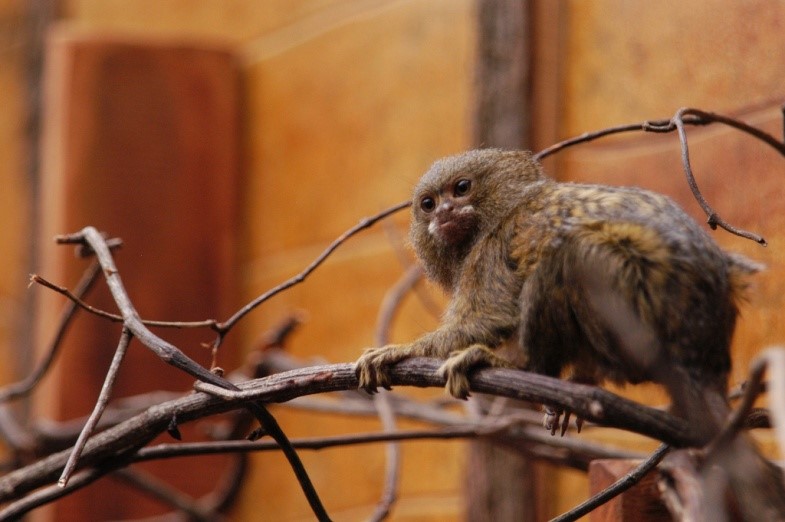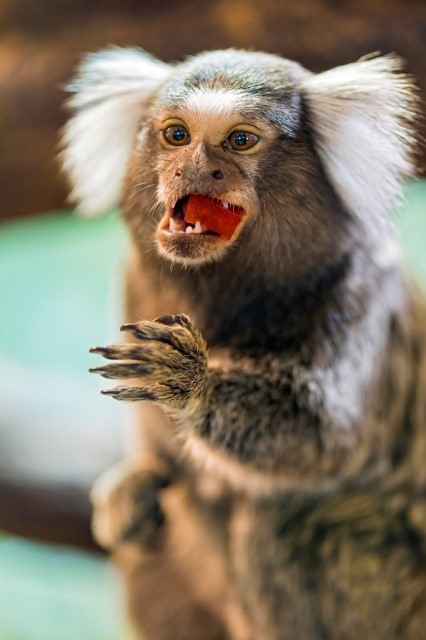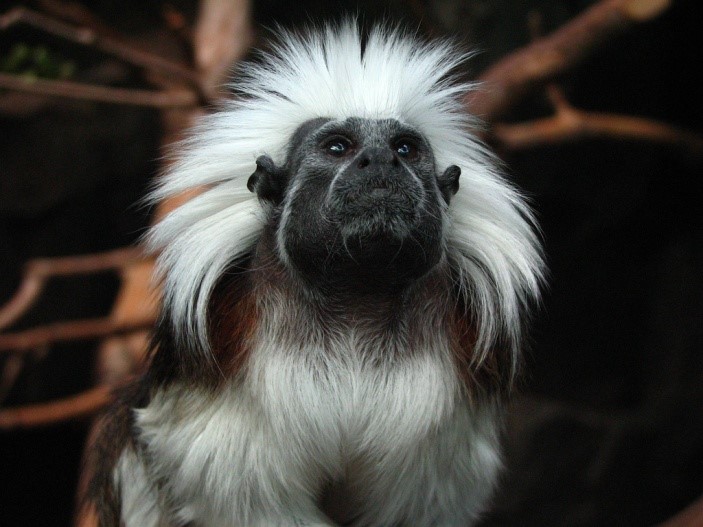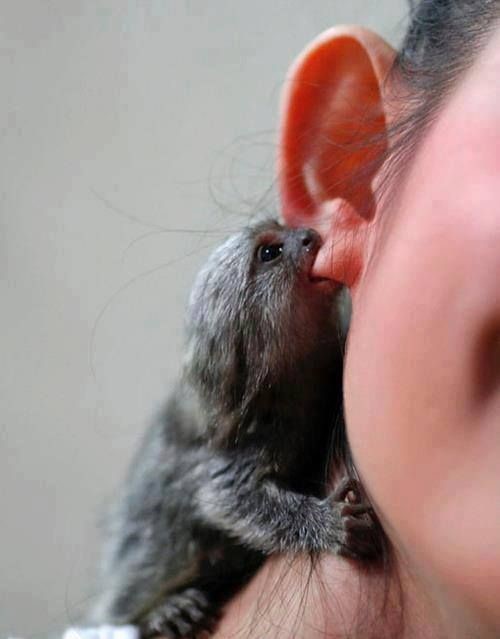What Is a Finger Monkey and Are They Legal As Pets?
Where to find finger monkeys for sale?
Peppered throughout the internet are images of ‘finger monkeys’, or tiny primates clasped around a person’s index finger. Since there are tiny pot-bellied pigs, miniature horses and ‘teacup’ pomeranians, people are often misled to believe that there are some type of specially bred ‘pocket-monkeys’ that make better pets.
The so-called finger monkey term generally refers to a species of callitrichid. These are small New World primates that include marmosets and tamarins. This is a diverse group of species, but the monkey species that is most commonly kept as a pet in the U.S. is the common marmoset. The pygmy marmoset is also referred to as a ‘finger monkey’, and more accurately so as it is one of the smallest primates in the world.
Can you own a pygmy marmoset?
It may seem appealing to get your hands on one of these tiny monkeys, but these animals are extremely rare in the private pet trade. The IUCN Red list website lists their conservation status as ‘least concern’; however it appears that this species is traded locally as pets in Ecuador, their country of origin. Habitat loss is also listed as a major threat for pygmy marmoset populations. Despite the fact that their populations seem to be reasonably stable in the wild, the pygmy marmoset is poorly represented in the United States pet trade.

John Morton CC by 2.0 Via Flickr
Therefore, sellers claiming to have ‘finger monkeys’ or pygmy marmosets might be referring to the relatively small and frequently-bred common marmoset or such offerings may even be scams. It also needs to be said that a monkey’s smaller size doesn’t necessarily make it a ‘better’ pet; all monkey species are highly socially, inquisitive, and it is generally recommended that they are housed in very large enclosures (ideally a spacious, walk-in aviary) for optimal welfare.
Marmosets ‘finger monkeys’ as pets
Much of the photos of these ‘finger monkeys’ are of common marmosets (another species is the Geoffroy’s marmoset), but they are juveniles, hence why they cling to fingers as babies normally attach themselves to their mother. Cute as they may be, it needs to be emphasized that these animals aren’t ‘pocket pets’ in any form.
They are extremely active and may possess the potentially injurious hormonal urges of their larger counterparts. One benefit of smaller primates is that they are limited in the amount of damage they can do given their size, but even small teeth can still inflict wounds that require stitches. These are risks that primate owners must accept, unless the animals are being kept with ‘hands-off’ techniques, essentially like display zoo animals.

Tambako The Jaguar CC BY-ND 2.0
Other species of ‘finger monkeys’
- Tamarins are also referred to as finger monkeys, particularly when they are babies. The species you will encounter in the pet trade are the cotton-topped tamarin and red-handed tamarin. Tamarins are less common than marmosets and more expensive, but they have similar care requirements.
- Bush babies could possibly be called finger or ‘pocket monkeys’ but they are not even monkeys, they are in a primate group called prosimians along with lemurs.

Pelican (CC BY-SA 2.0) Via Flickr
Small monkeys are fragileDespite the appeal due to their size, be aware that these pricey, demanding animals are very delicate, especially when they are sold as tiny babies. These New World monkeys can catch human viral diseases that cause mild symptoms in us, but are fatal for them. Even the presence of a cold sore could spell disaster for your precious pet. It is recommended to keep your monkey away from strangers (this is also a good idea because should a monkey bite or perhaps even scratch someone, it could be confiscated and euthanized to be tested for rabies by animal control).
More to consider for small pet monkeys
- Marmosets and tamarins have an odor. These small monkeys have scent glands and strong urine. They are known to ‘stink’ which will be very pungent if they are kept indoors. This may be reduced if they are spayed or neutered.
- You may want to keep more than one. All monkeys are social and the practice of keeping them alone is controversial. Some people keep monkeys as companion animals, but in doing this, their well-being will depend on how successful the owners are at bonding with them and keeping them mentally stimulated. This might require some innate skill in learning to adapt to the needs of another species. Keeping multiple monkeys would be a default, more simple way to keep the monkey’s needs met.

Silk Knoll CC by 2.0 Via Flickr- Price. Monkeys are not cheap, and considering that especially for a beginner, it’s probably a good idea to start with two animals, costs depending on the species (without caging, vet care and specialized diet) can range from $2500 to $9500 (depending on whether you start with babies or adults). The price range seems to be increasing every year.
-
- They can live up to 20 years. Getting a monkey is a huge commitment, particularly if the animal will live alone and depend on you to take it out and interact with it each day. Consider how your vacations will be affected and if future life changes could cause the monkey to be without the home it has known for its whole life. Monkey owners should have a very stable home and financial situation.
- Legality. Pet primates are illegal in most states and in those states where they are legal, several counties and cities ban them. The number increases every year. Unfortunately, this is the biggest crises facing privately owned pet monkeys today.
- Vet Care. Even many veterinarians that specialize in exotic pets will not see primates due to their nature of being harder to handle and ability to catch or transmit human pathogens (this is rare). It is extremely important to secure a reliable, preferably board-certified in zoological medicine, primate vet. They are unfortunately expensive and hard to find due to their specialization.







